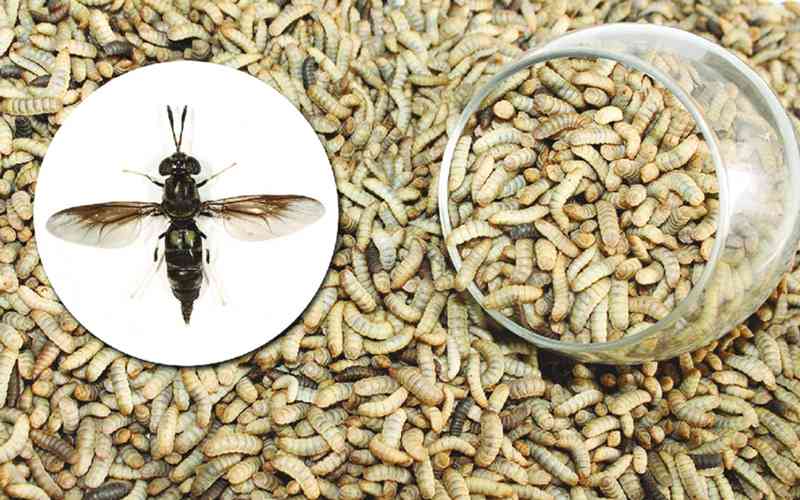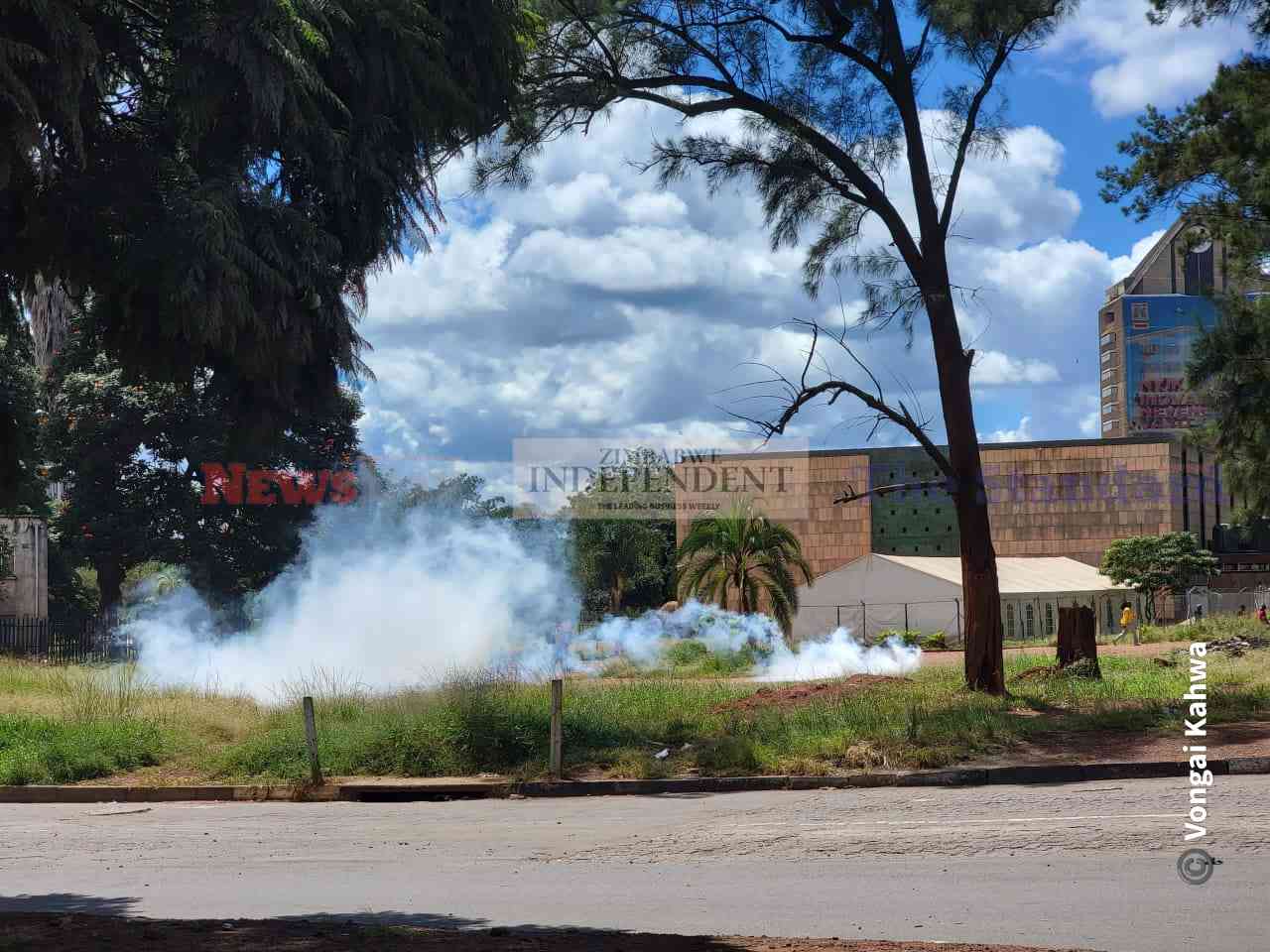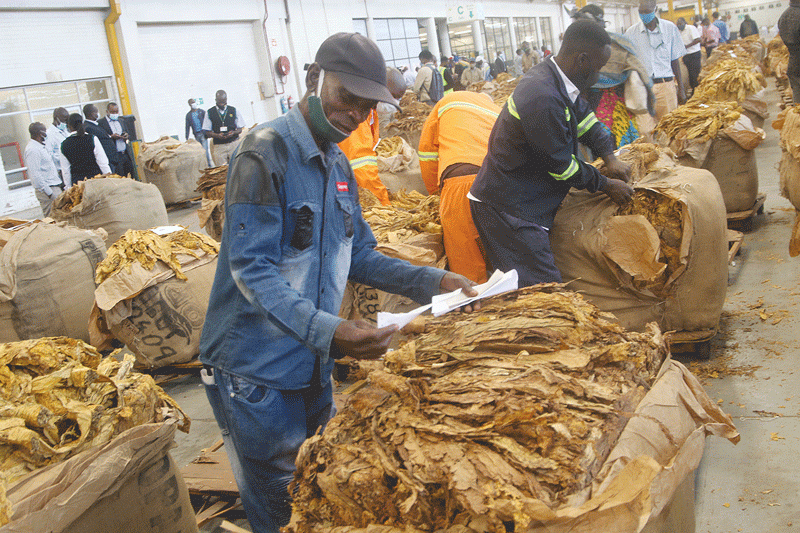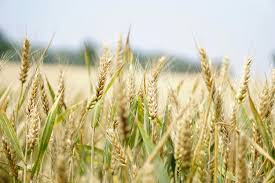
ON a sunny and windy morning, Brighton Zambezi scooped up a kilogramme of black soldier fly larvae into a box. In a few days, he would dispatch them to a farmer in Botswana.
The agricultural entrepreneur breeds the insect larvae, wormlike creatures that eventually become adult insects, at the back of his mother’s house in Harare’s Sunningdale high-density suburb.
“I expect to send the larvae across the border anytime this week to a farmer who wants to start black soldier fly farming,” says Zambezi (38), a single father.
Black soldier flies are harmless insects that are attracted to decomposing waste. They are found in dumping grounds and urban landfills, but they can also be found at illegal dumpsites in residential areas with uncollected garbage such as Sunningdale, where Zambezi collected the larvae he put in a small cage when he kick-started this maggot project back in 2019.
A technician by profession, Zambezi developed an interest in insect farming after overhearing a conversation between his seatmates on a flight to South Africa.
After researching the process further, Zambezi became convinced that insect farming would help tackle various problems his community was facing, from uncollected garbage to a lack of affordable high-protein feed for chicken and fish.
Now, Zambezi travels to nearby countries, including Botswana and Mozambique, to help people set up black soldier fly stations at their farms.
Uncollected garbage is a menace in Harare. There is inconsistency in garbage collection by city authorities, particularly in high- and medium-density suburbs forcing residents to find alternative places near their houses to dump garbage. Yet for humans, decomposing garbage is a health hazard, forming breeding ground for deadly diseases such as cholera and typhoid. The removal of garbage from dumpsites also cuts down on methane and carbon dioxide emissions produced by decomposing waste.
- Addressing unfair trade key to transforming African food systems
- Residents finger ZETDC employees in cables theft
- New perspectives: Building capacity of agricultural players in Zim
- Mangwe farmers benefit from agric projects
Keep Reading
Zambezi feeds these insects, housed in different trays and recycled containers under a black net, with vegetable and fruit waste he collects from dumpsites in his neighbourhood.
Under this net, there are shrubs and weeds where black soldier flies lay eggs after mating. After five days, the eggs hatch into maggots — the wormlike, juvenile form of the fly — which are then harvested and sold as cheap and protein-rich feed for farm animals.
Zambezi runs a small poultry project in the backyard.
“The larvae are fed straight from harvesting to animals like fish or chicken,” he tells Next City.
“It has a natural protein content of about 60% compared to other feeds like soya.”
Some people even consume these insects due to their high protein.
“These insects are our future food innovation,” Zambezi says.
“It runs throughout the year and does not get disrupted by climate change. With the right equipment, black soldier fly farming flourishes even in winter.”
Another insect farmer, Joseph Anesu Marova, breeds maggots in the backyard of his home in Warren Park, another high-density suburb in Harare. He frequently goes to illegal dumpsites in his area to collect waste to feed the insects, helping reduce uncollected garbage.
“I acquire waste on a frequent basis to feed the black soldier flies,” says Marova (26), founder of Unique sustainable ethics in agricultural solutions, a company that provides consultancy services to farmers in Zimbabwe.
Marova supplies feed to other farmers and sells larvae to Zimbabwean colleges and universities as well as farmers in Namibia and South Africa. A kilogram of pre-pupa insects sells for about US$50.
“We are making profits,” Marova says.
He’s increasing his annual maggots production target.
“For chicken rearing, feeds make up 70% of the production costs. So, with black soldier fly as a high-protein feed, we are reducing our feed to about 35% of the production costs.”
“Zimbabwe is experiencing an economic malaise, with high inflation and unstable currency fuelling a spike in the prices of most goods. The need to significantly reduce and manage production costs is pushing many farmers to innovate in order to remain in business,” says Paul Zakariya, executive director of the Zimbabwe farmers union. “ Stockfeed prices continue to soar high against depressed producer prices,” he says.
Waste management also continues to be a major problem in many settlements, he says.
“Black soldier fly farming is proving to be an effective way to deal with this situation,” Zakariya says.
But the small-scale urban set-up can be a setback to this emerging solution. Morova says lack of space restricts his insect- farming ambition.
“I fail to meet demand from farmers who need larvae to feed poultry and fish,” he says.
“With the limited space I have, I can only manage to meet the demand from those farmers who need the larvae to establish their own maggot farming stations.”
While the insects can be bred all year long, the small-scale urban setting of his operation also means the winter season can disrupt insect production: Black soldier fly farming needs higher temperatures of at least 25 degrees Celsius.
“In winter I definitely stop breeding and resume in summer,” Marova says. “Even if I put a greenhouse I cannot harvest enough sunlight since it is an urban area. So, I would need other equipment like infrared lights to control temperatures which comes at a cost.”
Ultimately, Zambezi aims to become a commercial insect farmer.
“If proper land is provided, I am going to be one of Zimbabwe’s first black soldier fly commercial farmers,” he says.
So far, he has not received any support from the government, nor has he secured any corporate partnerships or bank loans.
But the Zimbabwean government has publicly noted black soldier fly farming’s potential to transform local livestock feed formulation.
Agronomist John Basera, permanent secretary in the Ministry of Lands, Agriculture, Fisheries, Water, Climate and Rural Resettlement, tells Next City that black soldier fly farming has full support from the government.
“It is a noble programme. We just need to look at how scalable it can be,” he says.











